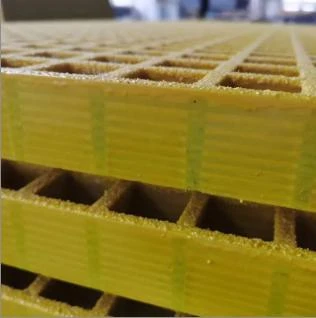loading...
- No. 9, Xingyuan South Street, Dongwaihuan Road, Zaoqiang County, Hengshui, Hebei, China
- admin@zjcomposites.com
- +86 15097380338
- Welcome to visit our website!
fiberglass rebar cost
The Cost of Fiberglass Rebar A Comprehensive Analysis
In recent years, fiberglass rebar has emerged as a popular alternative to traditional steel reinforcement bars in construction projects. This innovative material, made from a composite of glass fibers and resin, boasts several advantages over its steel counterpart, including enhanced corrosion resistance, lighter weight, and increased tensile strength. However, one of the primary considerations for contractors and construction managers is the cost associated with using fiberglass rebar. In this article, we will delve into the various factors that influence the cost of fiberglass rebar and the potential long-term savings it can offer.
Initial Costs of Fiberglass Rebar
The upfront cost of fiberglass rebar is generally higher than that of traditional steel rebar. As of now, prices for fiberglass rebar can range from $1.00 to $3.00 per linear foot, depending on the size, manufacturer, and the specific type of composite used. In contrast, steel rebar typically costs between $0.30 and $0.80 per linear foot. This initial price difference can deter some project managers from choosing fiberglass rebar. However, it is crucial to look beyond the initial investment and evaluate the overall value and benefits of using fiberglass rebar.
Factors Influencing Cost
1. Material Composition The cost of fiberglass rebar can vary based on the quality and composition of the materials used. Higher-grade materials usually come at a premium but may offer superior performance and durability.
2. Size and Shape Fiberglass rebar comes in various sizes and shapes, which can affect pricing. Custom shapes or larger diameters may incur additional costs for manufacturing.
3. Availability The market availability of fiberglass rebar can influence pricing. In areas where fiberglass rebar is not widely used or available, prices may be higher due to limited supply.
fiberglass rebar cost

4. Market Demand Like other materials, the price of fiberglass rebar can fluctuate based on demand. Increased interest in sustainable construction practices may drive demand and affect pricing.
Long-Term Cost Savings
Despite the higher initial cost, fiberglass rebar can provide significant long-term savings. One of the main advantages of fiberglass rebar is its exceptional resistance to corrosion, which can dramatically extend the lifespan of structures. Unlike steel, fiberglass does not rust, making it an ideal choice for environments subject to moisture, chemicals, or salt exposure. This resistance reduces maintenance costs and the need for repairs over time, ultimately leading to substantial savings for building owners and contractors.
Moreover, the lighter weight of fiberglass rebar can result in lower labor costs. Since it is easier to handle, transport, and install compared to steel, construction crews may complete projects more quickly, leading to reduced labor expenses. The reduced weight can also lower shipping costs, making fiberglass rebar a more cost-effective option for transport.
Environmental Considerations
In today’s environmentally conscious world, the sustainability of building materials has gained significant attention. Fiberglass rebar is often praised for its low environmental impact compared to traditional materials. It is fully recyclable and can be manufactured using eco-friendly processes, contributing to greener construction practices. By choosing fiberglass rebar, contractors can appeal to clients looking to minimize their ecological footprint, which may also translate to a competitive advantage in the marketplace.
Conclusion
While the initial cost of fiberglass rebar may be higher than steel, its unique advantages offer compelling opportunities for cost savings in the long run. Factors such as reduced maintenance, lower labor costs, and minimal environmental impact further enhance its value proposition. Understanding the total cost of ownership—considering both upfront expenditure and long-term benefits—is key for decision-makers in the construction industry. As the demand for sustainable and durable building materials continues to grow, fiberglass rebar is poised to play a critical role in the future of construction.
-
GRP Structures: The Future of Lightweight, High-Performance EngineeringNewsJun.20,2025
-
FRP Water Tank: High-Performance Storage for Corrosive and Clean Water SystemsNewsJun.20,2025
-
FRP Square Tube: The New Industry Standard for Chemical and Structural ApplicationsNewsJun.20,2025
-
FRP Pultruded Profiles: The Ultimate Choice for Lightweight Structural StrengthNewsJun.20,2025
-
FRP Handrails: The Safer, Smarter, and Stronger Choice for Modern InfrastructureNewsJun.20,2025
-
FRP Grating: The Smart Solution for Durable, Lightweight Industrial FlooringNewsJun.20,2025
-
Why Choose a Galvanized Water Tank for Your Storage NeedsNewsMay.21,2025
